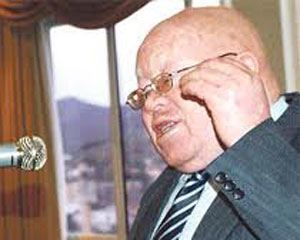
There have been many warm tributes for John Makumbe on his passing on last week.
Sunday Opinion by Lloyd Sachikonye
The community of scholar — activists in Zimbabwe is not a large one. So when a distinguished one of them such as John Makumbe was, passes on, a huge gap is created.
He was a rare example of a scholar who was also a resilient activist for social justice, human rights and democracy.
Often at the centre of various campaigns in different civil society organisations and forums, Makumbe invested a great deal of his time, indeed life, to denounce institutions and conditions that curtailed freedom and justice.
In this he was fearless where others were timid, blunt where some were reticent, and eloquent where others were obscure in their analysis of authoritarianism and repression in Zimbabwe. He could be relied upon “to call a spade a spade” in Zimbabwean politics, and remind us if and when the “emperor had no clothes”.
Makumbe was one of that remarkable set of scholar-activists who obtained their PhDs just before or after Independence and transformed the teaching of Political Science and Administration at the University of Zimbabwe.
This trio consisting of Masipula Sithole (now late), Elphas Mukonoweshuro (also late) and Makumbe himself brought an intellectual vibrancy that was felt in the wider society. Their yearning for a more democratic and just society was the motivation for active participation and leadership in civil society. They demonstrated that it was possible, indeed necessary, to organise to make society more humane and conscious of its basic freedoms.
- Chamisa under fire over US$120K donation
- Mavhunga puts DeMbare into Chibuku quarterfinals
- Pension funds bet on Cabora Bassa oilfields
- Councils defy govt fire tender directive
Keep Reading
Active in different civil society organisations at different times, John Makumbe juggled his time between lecture rooms, public seminars and the various campaigns that he was involved for more than 20 years.
He was a model of a “public intellectual” as much at home in the seminar room as in public debates where his sharp wit and delicious humour were legendary.
Regardless of the sensitivity of the theme of the debate, he had the gift of being lucid, blunt and humorous at the same time, a disarming tactic that often confused his critics. A treasured source of quotes by print journalists and the electronic media, Makumbe was forever ready to offer the most apt comment as if his other role was that of an academic “spin doctor”. He was equally fluent and readable in the articles that he wrote for his regular columns in the Zimbabwean and the Worker newspapers.
Of course, due to his sharp commentary and active work in civil society, Makumbe earned some critics. When the Zimbabwe state media carried pieces on the role of intellectuals and NGOs in society, he was often one of those “named” and “demonised”.
Terms such as “sell-out” were used and this must have hurt Makumbe despite the humorous gloss that he put on his responses. Such criticism is perhaps inevitable when an intellectual refuses to be co-opted by an authoritarian state and persists in “speaking truth to power”; as they say, “it goes with the territory”.
Perhaps some will not have a full picture of Makumbe’s distinction as a scholar. An author of many journals and several books on Administration in Zimbabwe, his best book is Behind the Smokescreen (UZ Press) which he co-authored with Daniel Compagnon in 2000.
It remains one of the sharpest analyses of what was defective in Zimbabwe’s electoral system and made possible the rigging of elections. He enjoyed my praise of this book but he warmly returned the compliment when my own entitled, When the State turns on its Citizens (Jacana Press) was published in 2011.
Thus Makumbe slogged hard to earn his professorship, and could have climbed further heights if he had left for the diaspora. But it was the measure of the man, that he remained modest and stayed on at home “with the people” to organise and struggle for democratic change. Zimbabwe is all the poorer for losing such an illustrious public intellectual and activist as well as humanist.
It is however richer for having benefited from his contribution and example. The best memory for him would be to pick up from where he left.
Makumbe’s ideal was a society in which pluralism and diversity in thought and politics were respected and protected. No matter how much we may disagree on some issue, we would still be Zimbabweans at the end of the day, hence the need to nurture a culture of intellectual and political tolerance. Mufambe zvakanaka professor (Go well prof.)
l Lloyd Sachikonye (Prof.) Institute of Development Studies University of Zimbabwe











